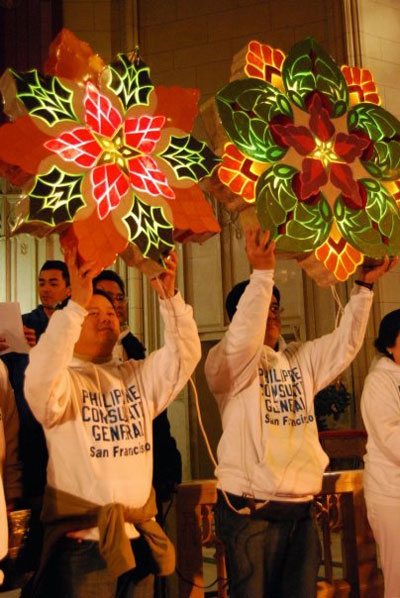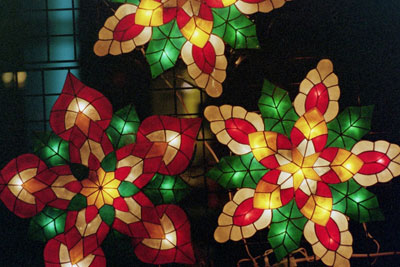Filipino American Development Foundation
Filipino arts and culture
The Filipino American Development Foundation was founded in 1997 to develop initiatives and resources to strengthen the social, physical, and economic well-being of Filipino Americans in San Francisco’s SOMA district and throughout the San Francisco Bay Area. The Filipino American Development Foundation manages the Bayanihan Community Center; “bayanihan” is in reference to a Filipino cultural value meaning mutual support and caring.
The Filipino American Development Foundation organizes two annual community events — a Flores de May Festival in May and the Parol Lantern Festival & Parade in December. These programs use traditional arts and culture as a way to engage community members, promoting cooperation and building strong relationships among members.
In 2011 and 2009, grants from ACTA’s Living Cultures Grants Program supported the Parol Lantern Festival & Parade. Parol lanterns have become a potent symbol of hope, blessing, family, and community solidarity for many Filipinos, and a staple decoration during the Christmas holiday. A series of workshops will take place to teach the folk art of creating the star-shaped lantern; the workshops culminate in a parade through San Francisco’s SOMA district, which was historically Filipino Town and now is a diverse multicultural and economically challenged urban downtown area.
The Filipino American Development Foundation participated in ACTA’s Folk & Traditional Arts Mentorship Initiative in 2005, working with Herna Cruz of the Likha Pilipino Folk Ensemble to hold workshops and classes in rondalla music, a traditional string ensemble. The Spanish brought rondalla music to the Philippines in the 1500s and over many centuries it evolved into a distinct Filipino musical form. Filipino rondalla is characterized by its instrumentation, indigenous rhythms, melodies, love songs, and lullabies.


